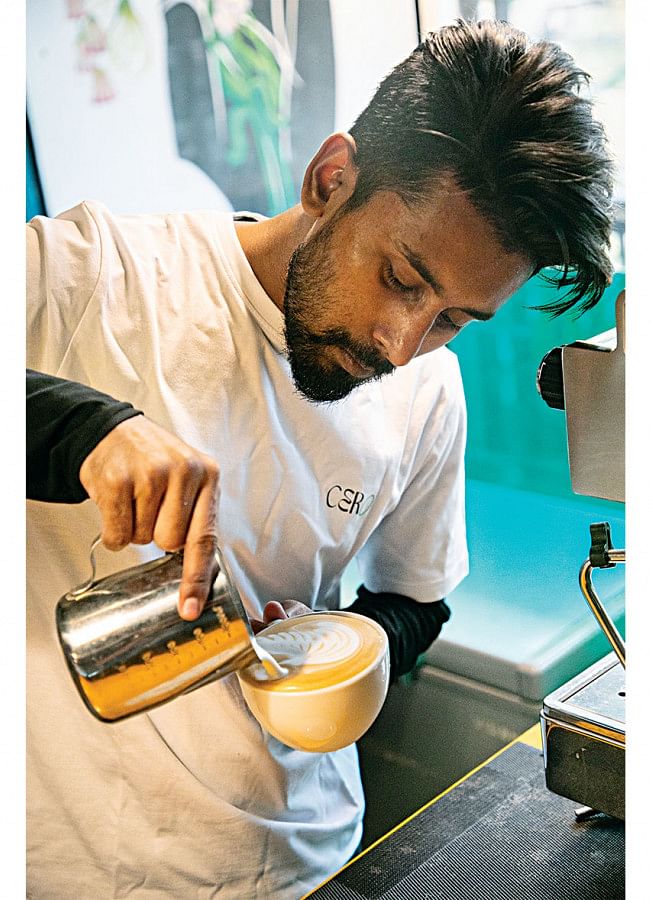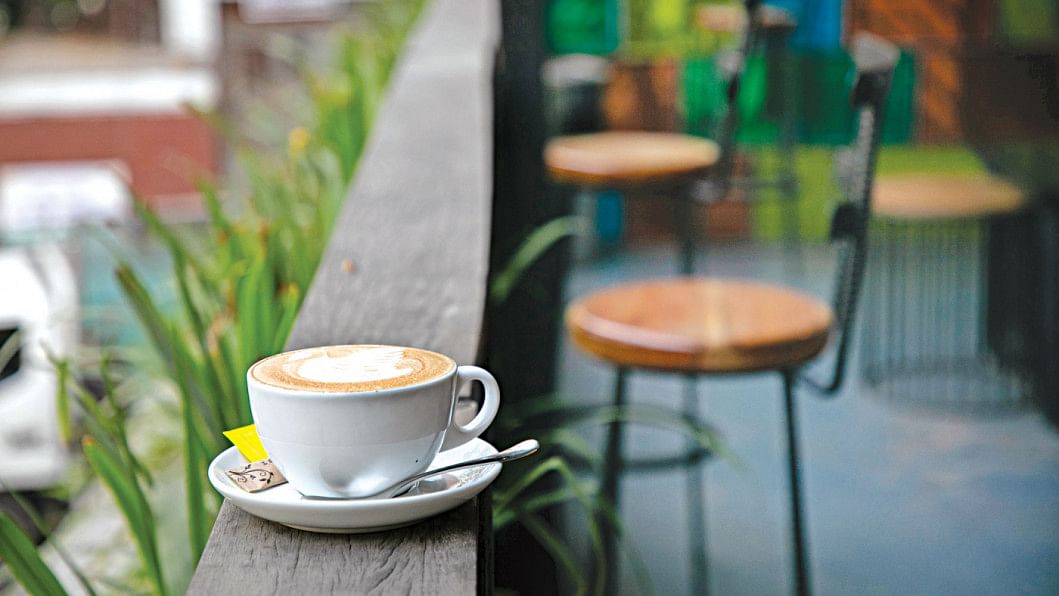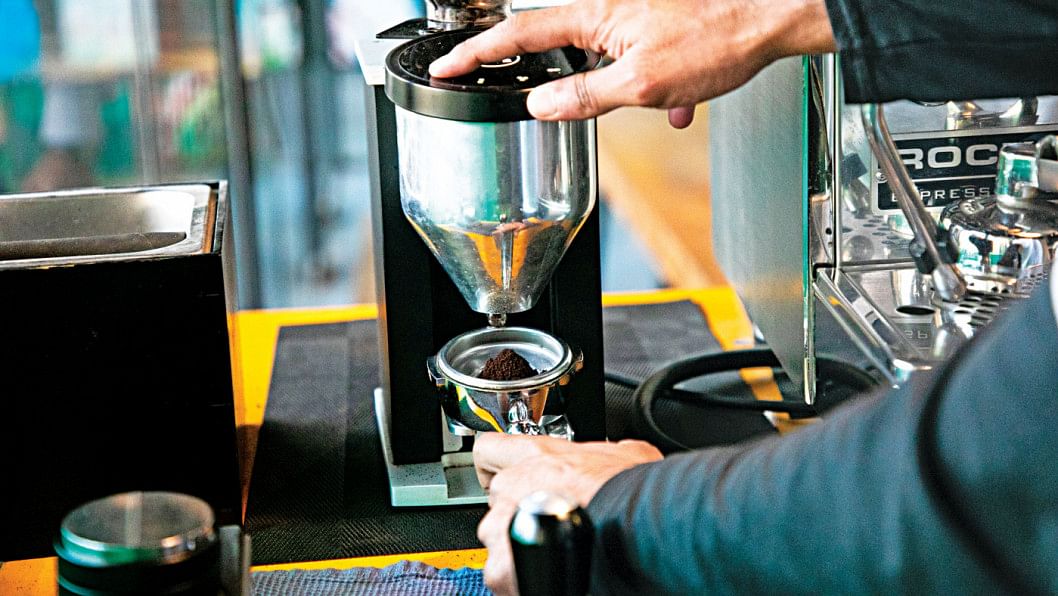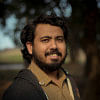Life takes place in Dhaka’s cafes
How humans discovered coffee and how, after centuries of innovation, it became the elixir it is now is a fascinating tale itself.
Legends say, around 800AD, a goat herder named Kaldi in Ethiopia first discovered the potential of these beloved beans by chance. The story goes like this: Kaldi discovered coffee after he noticed that after eating berries from a certain tree, his goats became so energetic that they did not want to sleep at night.
After he shared the story with a local monk, he made a drink with these berries and found the kick that millions around the world now look for after leaving bed in the morning.

By the 15th century, coffee cultivation began in the Arabian Peninsula. However, by that time, coffee was not only enjoyed in homes but also in the many public coffee houses called "qahveh khaneh" which began to appear in cities across the Near East. These coffee houses or cafes quickly became such an important centre for the exchange of information that they were often referred to as "schools of the wise."
Dhaka's cafe culture is attracting people from all walks of life, producing stories of bonds, love and success.
Since then, the café culture has expanded to every corner of the world as a symbol of community, productivity, and even romance.
Though relatively new, cafe culture has slowly taken root in Dhaka as well, as more and more people find themselves indulging in a periodic injection of caffeine alongside a hearty sandwich, or maybe a piece of chocolate brownie.
In Dhaka, where tea has reigned supreme for over a century, coffee appeals to a different and diverse cast of people, all of whom find shades of what they desire in one of Dhaka's cafes.
From our conversations with visitors of Dhaka's various cafes, it seems cafe culture is attracting people from all walks of life, producing stories of bonds, love and success.
For a while though, cafes in Dhaka were the major hotspot for teenagers and young people. But as cafe culture is maturing in Dhaka, the demographic of patrons is maturing as well.

Labib Mahmud, a lecturer at a private university, remembers his younger days and what the environment in cafes was like.
"In 2017, I was working remotely while I was a student, so I used to go to cafes to get my work done," he said.
"Back then, a lot of young people would go to cafes to meet friends, or just hang out. Amid groups of people, it felt odd to work alone. Nowadays, the trend has changed a lot. Individuals doing their work at the cafes have become a common sight," he said.
Besides having a good time, youngsters tend to do a lot of productive things over cups of their favourite coffee.
Robiah Arefin, a recent high school graduate, tells us how he doesn't frequent cafes unless he has something major coming up, like college applications.
"I usually go to a café when I want to avoid distraction. In that environment, I can focus on the work at hand," he said.
And what makes cafes the perfect place to be productive?
"The high-energy environment works for me. Everyone is doing their own thing, so I don't feel self-conscious," explains Robiah.
Working people looking for the right environment make up a big chunk of cafe patrons.
Sarah Bari, a journalist and university teacher who is now pursuing higher education abroad, remembered how Dhaka cafes became her refuge.
"I love working in public spaces where the background noise becomes a distant hum. So, on the most hectic workdays, I'd just pack up and go work in a cafe."
And the work culture helps to create an interesting community feel in these cafes, noted Labib Mahmud.
"Working in cafes often sparks conversations with fellow regulars, which I find quite enjoyable," he said.
In addition to being hubs for work, cafes have also become ideal spots for meeting new people. The blend of public yet private settings, where two individuals can sit across a table and engage in heartfelt conversations over a cup of coffee, has long stirred the yearnings of the heart.
"Cafes are my ideal locations for first dates. It's low pressure. There's food or coffee involved, so you have something to do instead of struggling with nerves," said Sarah Bari.

Syeda Naushin Tabassum, a teacher at an English-medium school in Dhaka, fondly reminisced about the early days of her relationship with her now-husband.
"Back then, I was in my first year of university, and I wanted to have some space where I could spend some time with my partner and talk. We got to know each other by engaging in conversations and spending time in casual places such as North End, or Cafe Mango," she said.
Kazi Ebtehaz Reza, an engineer working at a private firm in Dhaka, recalled his café romance.
"My wife has always been a coffee enthusiast, so, before we got married, we often visited different cafes and coffee shops in the city. In the end, our families met for the first time in a cafe as well, which, I think, made perfect sense."
Cafes have also earned a reputation for being the go-to place if you want to start an initiative and plan the next steps with friends.
Nabila Jemyma Jalil, a creative copywriter at a marketing agency, told us how she and her friends got the idea for their non-profit, WeMen View, sitting in a Dhanmondi cafe.
"We were university students back then, and to escape the campus clamour, my friends and I would go sit in cafes to just talk or rant. It was during one of these ranting sessions that we got the idea for our non-profit, which aims to counter sexual harassment, sexism, and strict gender roles by focusing more on men and boys, visiting schools, and holding discussions," she said.
To get an idea of what inspires and drives the creation of cafes, we spoke to a couple of cafe owners.
Sabnin Sababa, co-founder and CEO of D's Bistro in Uttara, said, "Life in Dhaka has become very busy. So, we want to maximise the little time we have for recreation by spending it with friends and family in active spaces with great food and beverages. If the place is aesthetically pleasing, it becomes a perfect location to go and spend time in."
Tanjeem Ahmed Khan, founder of Cero Cafe in Gulshan, believes cafes fill in the void left by a lack of public spaces in Dhaka.
"When I was young around 2007-08, there wasn't much space in Dhaka to meet friends and new people. With Cero, I was attracted to the idea of a small space where I can bring people together," he said.
While Dhaka's growing cafe culture is seen as positive, eateries are now facing scrutiny for lax safety measures.
Patrons like Labib Mahmud feel safe in cafes, as he thinks most of them are located in mid-rise buildings and spaces with open air and natural light. "If a cafe was in a high-rise commercial like the ones on the news recently, I probably wouldn't go there."
Tanjeem Ahmed Khan thinks a lot needs to be done to ensure public safety.
"The first thing we have to make sure is that our gas lines are safe. Owners need to identify the places where faults can occur and take necessary steps. The fire department, landlords, or the authorities haven't been on top of the situation so far, so it's mostly on the restaurant owners to ensure safety. There needs to be a powerful regulatory body as well."
Cafes in Dhaka have become less of a destination and more of a cosy place away from home for regulars.
These are the places where encounters of wholesome randomness take place, like how this correspondent, on a visit to Vintage Bake and Cafe in Banglamotor last week, met a Chinese individual named Yang, who has been coming to Dhaka for business for the past two years.
Sitting in the middle of a bustling cafe full of corporate professionals, we had a short but memorable conversation with the help of the translation apps on our phones, over a cup of coffee and a delightful club sandwich.

 For all latest news, follow The Daily Star's Google News channel.
For all latest news, follow The Daily Star's Google News channel. 

Comments